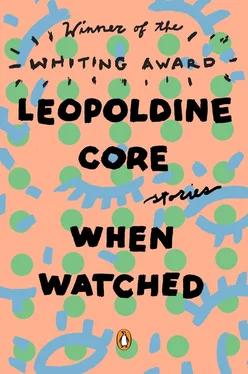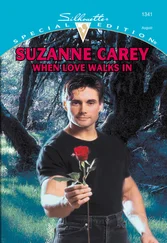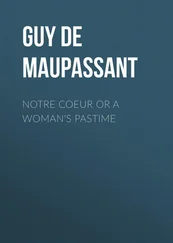He explained that he’d been watching her for a while, even watched her sleep by climbing up the fire escape and squatting there for hours. He said she looked great sleeping and she felt her face heat up. “I don’t snore or drool?” she asked.
“Never,” he said, and with shy delight she looked up into his one lit-up eye. The man was dressed more to host a cocktail party than a kidnap. He wore a black bow tie. Moonlight pooled on the tops of his tuxedo shoes.
“Are you going to kill me?” she asked.
“I am going to put you in there.” He pointed beyond tall weeds to a lake. Every star winked, every star had the heartbeat of a tiny baby shark. He carried her into the water like a fireman from a burning building. He was sure to tell her everything she was about to feel. Like a good doctor, he described what a lungful of lake water felt like.
She is sitting in bed with a mug of red wine and a book. She is barely reading the book. Mostly she is thinking. Occasionally she drinks from the mug. She is thinking that she is a weak person. She is thinking that her main weakness is her fear of fighting with people. She cannot bear to fight, not with anyone, even people she hates. This means she will do anything to resolve a disagreement right away, even if it means admitting she is wrong when she is not wrong, or apologizing when she is not sorry.
Her ex-husband was not afraid of fighting. He even seemed to enjoy it a little. She decides that this is why he always got his way.
She pictures them in bed after an argument: her crying and him silent. Sometimes he would leave the room when he noticed that she was crying but most of the time he would remain in the room. She would heat up and stare into space and give lengthy imagined speeches. She would stay quiet and it was like being quiet while being pinched very hard. She would wait for him to speak, or to show some signs of longing for her to speak. But he showed no signs of longing and he continued not to speak.
Often, she first broke the silence with a few soft, inarticulate sounds. Then, with mounting panic, a herd of language followed like frightened animals. She would say she was sorry and his face would morph into a gentler face. She remembers her merging sense of relief and defeat. She feels embarrassed.
Outside it is snowing. She looks out her small window and is soothed by the great load of whiteness. One bundled man is walking slowly by, leaving a trail of dark gouges in the snow. It is coming down harder now than it was earlier, when she walked the dog. On the steps of her building someone had dropped a few Polaroids and she stopped to look at them. In one she identified an arm and half a smiling head but the other two Polaroids were entirely defaced, just marbled squares of brown and yellow.
She wonders now if her husband was also giving imagined speeches during the silences that followed their fights. She thinks a moment and decides not. She decides that he was as detached as he appeared to be. She thinks that she would not want his skill of leaving in the presence of someone. But an instant later she realizes that this is a total lie. Because she would certainly rather be like him than like her. She would certainly rather leave than be left.
She reads three lines in her book but doesn’t hear them. She rereads them and the words seem to dissolve. She worries, as she always worries when this happens, that she will never be able to read again. That she will be spending the rest of life trapped in a chamber of her own thoughts, just a tortured head talking to itself. But she assures herself that these voices — her voices — always die down to a static hum. Probably, she thinks, her mind will be emptied by tomorrow, like a shaggy forest after a storm, cool and dripping and still. Then, she thinks, I will be able to read.
She puts the book down and finishes her wine. She lies on her side and begins to relax. She thinks she can only relax when she is exhausted. But she is glad to be exhausted. She likes to sleep. She likes when it comes down like an ax.
James arrived at Margo’s apartment in the early evening. He had wet hair, which she took as a compliment, since it usually looked oily, falling in sections over his forehead.
“Hey,” he said and walked right in, looking around freely, like a prospective buyer. He wore an olive army jacket like a shirt, buttoned low, a triangle of his pale chest exposed. Margo stood and watched as he perused the bookshelf, then picked up a framed photograph of herself and her sister as kids.
“There I am suffering.” Margo smirked.
“This is you?”
“Yeah.”
“You have a twin?”
“Yeah.” She secretly loved the poolside shot. The two little red-haired girls were obviously identical, but she felt that her own face blazed out of the photograph, as if her child self knew something extra. “That’s me,” she said, pointing.
“Why did your parents buy you the same bathing suit?”
“If we got different gifts — like even if they were just slightly different — one always seemed better and we’d get in a fight. We were kind of like dogs that way.” She paused. “It was weird though. Everyone stared at us. My mom loved it. She hated when we started looking different.”
“What do you mean looking different?”
“Baby got her nose pierced and bleached her hair.” Margo laughed. “It looked so bad. We were thirteen.”
“Baby?”
“When she was eleven she started insisting we call her that. Her real name is Kate.”
“Weird,” he said, setting the frame back down.
“I think she saw people saying it to women on TV.”
He laughed. “What’s she like now?”
Margo couldn’t think of much that had changed. At twenty-three, Baby was the same moody, protean creature. She hated sharing a face with Margo and often reasserted her desire to get a nose job once she had enough money. The two lived together but Margo had begged Baby to stay with their parents that night. “I’ll do anything,” she said and Baby groaned. But then after much coercing she packed a little bag and left.
“Now her hair is black,” Margo said. “And she’s really smart. Probably smarter than me. The thing is, she does nothing !”
“What do you mean nothing?”
“I mean she just watches TV. And makes brilliant passing remarks.”
He smiled. “I know those types. There’s no society for them.”
“Yeah,” Margo grinned. “Which is fine. But now she’s on antidepressants.” Her eyes narrowed. “And I’m so against it.”
“You liked her better when she was depressed?”
“She didn’t seem clinically depressed to me. I mean… for a shut-in who does nothing but watch TV, depression seems like an appropriate response. Taking pills just seems…” Margo broke off. “It’s just something she’s doing to be different from me.”
“Everyone I know is on antidepressants,” he said.
“Yeah and they’re all on the same antidepressants,” Margo chimed. “Like, as if our insides aren’t particular.”
“Right,” he said, nodding.
“In fifty years we’ll look back and find these drug treatments barbaric,” Margo continued. “It’s gonna get a lot more refined, I think.”
“Well I won’t ever take that shit.”
“Me neither. But at a certain point we won’t have a choice. Pharmaceuticals get in the water. People flush pills and pee them out. Hormones too.”
“Hormones?”
“From birth control.”
“Oh right.” He looked down at his hands. “Shit.”
“We treat water like it’s endless,” she said. “But there isn’t much left.”
Читать дальше












